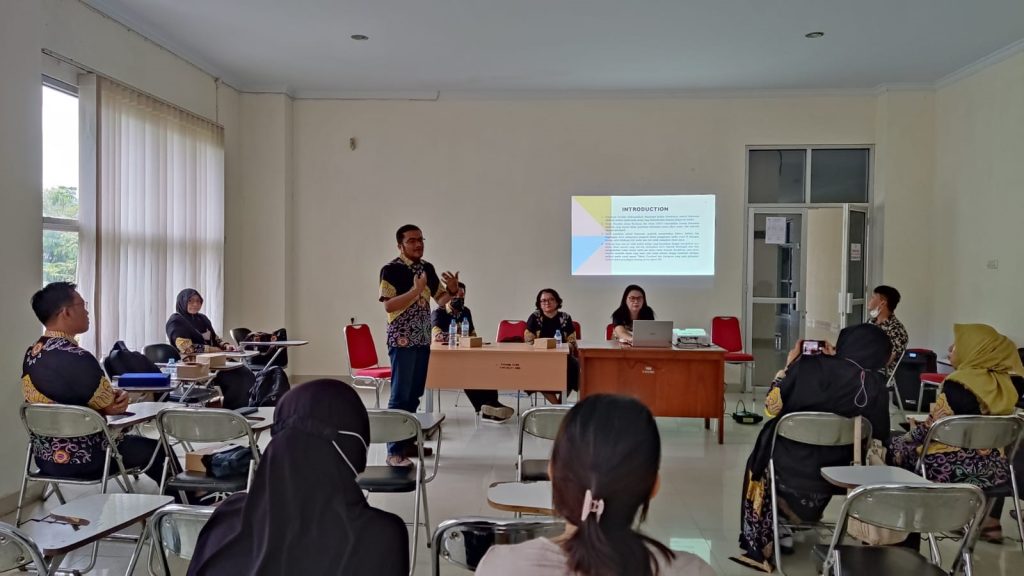
UNIB Communication Lecturer Explains Research Results at UNSRAT
Lecturers in the Department of Communication, Faculty of Social and Political Sciences (FISIP) Bengkulu University include, Dwi Aji Budiman, MA, Rasianna Br Saragih, M.Si, Andy Makhrian, M.Sc, Yuliati, M.I.Kom, Dr. Mas Agus Firmansyah, M.Si, Dr. Lisa Adhrianti, M.Si, Drs. Dedi Supriadi, M.Si, Wahyu Widiastuti, M.Sc, Dr. Neneng C. Marlina, M.Si and Eka Vuspa Sari, MA, explained the research results in the lecture room of the Communication Science Study Program of the Faculty of Social and Political Sciences (FISPOL) Sam Ratulangi University, Manado, North Sulawesi, Thursday (11/10). The presentation of the research results is a series of Tri Darma activities of universities that have been previously agreed between the Department of Communication Science FISIP University of Bengkulu and the Fispol communication science study program, Sam Ratulangi University Manado.
The results of the research carried out by lecturers majoring in UNIB communication and lecturers of the Fispol communication study program, Sam Ratulangi University Manado are part of efforts to establish and develop the academic atmosphere of the two study programs in following scientific developments in the field of communication.
Meanwhile, through his presentation, Dr. Mas Agus Firmanyah, M.Si who raised research entitled social media in a private and industrial context found symptoms that the current media presence cannot be separated from the number of people who unwittingly depend on their lives through the use of gadgets connected to the social world. He revealed that the use of social media that has become a daily necessity of the community cannot be separated from the emergence of industrial forces which in turn will dominate or even dictate the social media users themselves.
“Currently we are faced with how social media has become an industry whose turn is able to dictate its users, for example when we try to browse one product, then our sign asks for offers to appear through our social media homepage without us looking for it,” he explained.
On a different occasion, Wahyu Widiastuti, M.Sc explained about the benefits of social media as a support for the activities of political actors. Through his percentage, Wahyu Widiastuti highlighted that the current political condition cannot be separated from the use of social media. “Many world leaders involve their activities through social media, and this is undeniably one of the platforms in an effort to communicate and interact,” he said.
In another section, Dwi Aji Budiman, MA explained the results of research on the practice of symbolic violence in private spaces and anticipation through character education and digital literacy. The research, which consists of Rasianna Br Saragih, M.Si, Andy Makhrian, M.Sc, Yuliati, M.I.Kom, departs from concerns about the loss of teenage characters, especially students who often commit violence in a symbolic context.
“Currently we are faced with the advancement of technology, especially digital media, and the communication process can be done anywhere and even in private rooms, but there are problems that arise where the process of communication interactions in private spaces often causes violence that is not physical but symbolic, this violence can unwittingly have an impact on someone’s psychology, especially those who are teenagers or
The results of the research obtained by Aji said, show that symbolic violence committed among students occurs through the use of social media. through interviews with informants shows that acts of symbolic violence are considered natural even though they realize it is a wrong action, but because there is a pattern of domination from one individual to another, the process of symbolic violence always repeats itself, therefore


